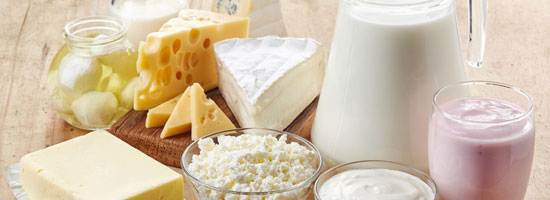Dairy and Acid Reflux

Commonly referred to as heartburn, acid reflux occurs when stomach acids flow back up the “food pipe” and causes a noticeable and uncomfortable burning sensation. Some people with acid reflux experience an uptick in symptoms when eating certain foods, including dairy. This could occur if you are lactose intolerant, although simply being lactose intolerant doesn’t automatically mean you’ll develop acid reflux or vice-versa. Here’s what you need to know about dairy and acid reflux.
A Link between Milk Allergies and GERD
Researchers studied children with acid reflux, which is known as gastroesophageal reflux disease (GERD), when it becomes chronic. Nearly 30 of the participants did not show significant improvements when given medication. However, they all experienced fewer instances of acid reflux when dairy products were eliminated from their diet. This led researches to conclude that there is a link between milk allergies and acid reflux.
But Don’t Be So Quick to Ditch Dairy Products
There are some notable benefits associated with dairy products, including the fact that they are a good source of probiotics (beneficial live bacteria). Dairy is also a reliable source of calcium, which is good for your bones. Calcium, in turn, helps your body absorb another important nutrient, vitamin D.
Additionally, probiotics may minimize issues with irritable bowel syndrome (IBS) and diarrhea. Because of these benefits, it’s best to see a doctor to determine if your acid reflux is truly associated with dairy. Diagnosis of a milk/dairy allergy usually involves a skin test and a blood test combined with results from a physical exam and a review of your medical history.
Consider Dairy Substitutes
If it’s believed dairy products may be contributing to your acid reflux, you may be advised to consider dairy substitutes. These substitutes typically include soy, almond, flax, rice, and similar ingredients. You should also be able to find suitable non-dairy alternatives to use for drinking, eating, and cooking. Just be sure to get into the habit of reading labels to make sure you aren’t consuming any true dairy products.
If you are not fully certain dairy products alone are contributing your acid reflux symptoms, you may be advised to keep a diary or journal for a short period of time. The purpose of doing so is to track your acid reflux episodes with the foods you are eating. If a connection between dairy and your symptoms is found, you may benefit from a combination of medication and diet changes.

